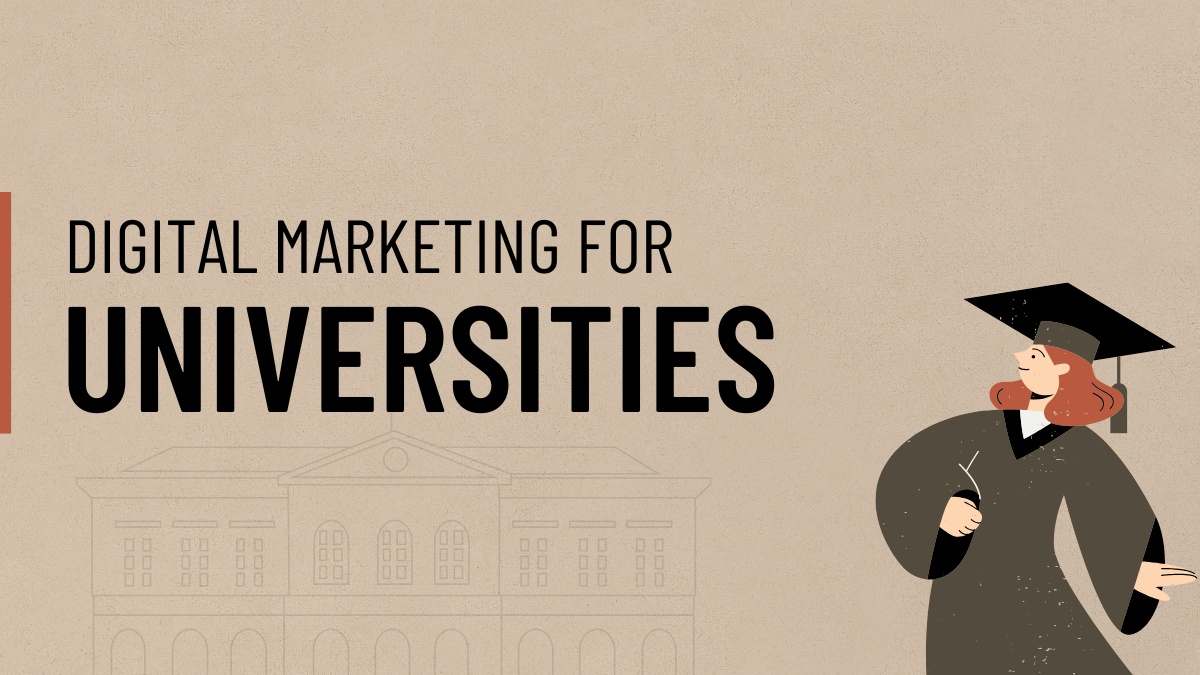
Digital Marketing for Realtors
Selling houses isn't just about "location, location, location" anymore. It's also about "connection, connection, connection." In a world where your next client is likely scrolling through their phone, showing up online is no longer optional—it's essential. If the term "digital marketing" sounds intimidating, don't worry. Think of it as simply using online tools to build relationships and showcase your expertise to the people who need you most.
This guide is designed for realtors who want to grow their business but aren't sure where to start with marketing online. We'll break down the most effective strategies into simple, actionable steps. You don't need to be a tech guru to make a big impact.
You will learn how to:
-
Use social media to connect with your community.
-
Build an email list that generates leads.
-
Make it easy for clients to find you on Google.
-
Create valuable content that builds trust.
-
Use paid ads to reach your ideal clients faster.
-
Leverage video marketing and virtual tours.
-
Measure what’s working so you can do more of it.
Let's dive in and turn your online presence into your most powerful tool for selling real estate.
Why Digital Marketing Matters for Realtors

Gone are the days of relying solely on yard signs and newspaper ads. While traditional methods still have their place, your clients have moved online. They start their search for a new home—and a realtor—on Google and social media.
Here’s why embracing digital marketing is a game-changer for your real estate business:
-
Nearly all home buyers use the internet in their home search. If you’re not online, you’re invisible to a huge pool of potential clients.
-
Digital marketing lets you showcase your knowledge of the local market, share success stories, and provide helpful advice. This builds your reputation as the go-to expert in your area.
-
Unlike a billboard that everyone sees, digital tools let you target specific demographics, locations, and interests. You can focus your efforts on people who are actually looking to buy or sell.
-
Consistent online activity keeps you on your audience's radar. When someone in your network is finally ready to move, you’ll be the first person they think of.
Case Study:
Sarah, a realtor in a mid-sized city, was struggling to stand out in her crowded market. By consistently sharing client testimonials and local tips on Facebook, she quickly built a reputation as the friendly neighborhood expert. Within six months, her referral business doubled—all thanks to her digital presence.
Master Social Media Marketing

Social media is not just for sharing vacation photos. It's a powerful platform for connecting with your community and showcasing your properties. The key is to be social, not just a salesperson.
Choose the Right Platforms
You don't need to be on every platform. Focus on where your clients spend their time. For most realtors, this means Facebook and Instagram.
-
Facebook: Excellent for building community. You can share listings, post client testimonials, run local events, and engage with neighborhood groups. Its user base spans a wide range of ages.
-
Instagram: A visual platform perfect for real estate. Use high-quality photos and videos to show off beautiful homes. Instagram Stories and Reels are great for behind-the-scenes content, like a "day in the life" or a quick property tour.
Actionable Tip:
If you’re new to Instagram, start by posting one photo or reel per week. Use simple hashtags like #DreamHome or #[YourCity]Realtor to help local users find you.
Example Post:
Post a short video introducing yourself and your favorite part of working in real estate. Let your personality shine—people connect with people, not just listings!
What to Post on Social Media
Your feed should be a mix of business and personality. A good rule of thumb is the 80/20 rule: 80% of your content should be helpful, engaging, and personal, while only 20% should be directly promotional.
Content Ideas for Realtors:
-
Listings: Share new listings with stunning photos and compelling descriptions.
-
Just Sold: Celebrate your successes! Post "Just Sold" graphics to show you get results.
-
Client Testimonials: Share a happy client's photo (with their permission) and a quote about their experience.
-
Local Highlights: Feature a local coffee shop, park, or event. This shows you're an expert on the community, not just the houses in it.
-
Real Estate Tips: Offer simple advice, like "3 Tips for Boosting Curb Appeal" or "Common Mistakes First-Time Homebuyers Make."
-
Behind the Scenes: Share a snapshot from a home inspection, a closing, or your process for staging a home.
Case Study:
John, a new agent, started sharing his morning coffee ritual at a local café and tagging the business. Not only did he connect with local followers, but the café also shared his post—helping him reach even more potential clients.
Actionable Tip:
Schedule your social media posts ahead of time using free tools like Buffer or Facebook’s own Creator Studio. This helps you stay consistent, even on busy days.
Build Your Business with Email Marketing

Email is one of the most direct and effective ways to nurture leads. Unlike social media, you own your email list. It’s a direct line of communication to people who have already shown interest in what you do.
How to Build Your Email List
First, you need to collect email addresses. You can do this by offering something valuable in exchange—a "lead magnet."
Lead Magnet Ideas for Realtors:
-
A free guide, like "The Ultimate Homebuyer's Checklist."
-
A neighborhood guide highlighting schools, parks, and amenities.
-
An invitation to an exclusive webinar on "How to Sell Your Home for Top Dollar."
-
A simple "Sign up for new listings" form on your website.
Actionable Tip:
At open houses, ask visitors to sign up for your email updates in exchange for a free resource, such as a printable moving checklist.
What to Send to Your Email List
Don't just send listings. Your goal is to provide value and build a relationship. A weekly or bi-weekly newsletter is a great way to stay in touch.
Email Content Ideas:
-
Market Updates: Share a brief summary of what's happening in your local real estate market.
-
Featured Listings: Showcase one or two of your best properties.
-
Blog Post Summaries: If you have a blog, send a link to your latest article.
-
Home Maintenance Tips: Offer seasonal advice, like "Get Your Home Ready for Winter."
Example:
Write a friendly subject line like, “Is it time to upgrade your kitchen? See this month’s home trends!” Keep your tone light and helpful.
Case Study:
Maria, a realtor in a suburban town, sends out a “New Listings and Tips” email twice a month. She includes a recipe and local event calendar. Her open rates hit over 50%—well above industry averages!
Get Found on Google with SEO

SEO, or Search Engine Optimization, is the process of making your website more visible on search engines like Google. When a potential client searches "realtors in [Your City]," you want your name to appear at the top of the list.
Local SEO is Key
For realtors, local SEO is what matters most. You want to attract clients in your specific service area.
Actionable SEO Tips:
-
Claim Your Google Business Profile: This is the single most important step for local SEO. It's a free profile that allows your business information (address, phone number, hours) to show up on Google Maps and in local search results. Fill it out completely and encourage happy clients to leave reviews.
-
Tip: Respond to every review—good or bad. Thank clients for kind words, and if you get negative feedback, reply professionally offering to resolve the issue.
-
Use Keywords on Your Website: Think about what your clients are searching for. They're likely using phrases like "homes for sale in [Neighborhood]" or "best realtor in [Town]." Include these keywords naturally on your website's pages, especially your homepage and service area pages.
-
Example: Create a page titled, “Homes for Sale in Maplewood” and include phrases buyers would use when searching online.
-
Create Location-Specific Pages: If you serve multiple neighborhoods or towns, create a separate page on your website for each one. Write a short description of the area and include relevant keywords.
-
Share Success Stories: Add a “Testimonials” page featuring real stories from past clients. Google loves fresh, unique content, and visitors appreciate social proof.
Case Study:
After updating her Google Business Profile and adding pages for three local neighborhoods, realtor Vanessa saw her website traffic triple in just four months—and gained four new clients from online leads alone.
Create Content That Attracts and Converts

Content marketing is about creating and sharing helpful information to attract your ideal clients. This builds trust and positions you as an expert. A blog on your website is the perfect home for this content.
Blog Post Ideas for Realtors
Your blog should answer the questions your clients are asking.
-
Buying/Selling Guides: Write detailed guides like "The Step-by-Step Guide to Buying Your First Home" or "How to Prepare Your Home for Sale."
-
Neighborhood Spotlights: Create in-depth profiles of the communities you serve. Talk about the lifestyle, schools, dining, and housing market in each area.
-
Answer Common Questions: Write posts that answer specific questions, such as "How Much Do I Need for a Down Payment?" or "Should I Buy or Rent?"
Actionable Tip:
Use free tools like Answer The Public or Google’s own autocomplete to find questions your audience is asking. Turn those questions into helpful blog posts.
Example:
Write a quick guide, “How to Estimate Closing Costs in [Your State],” and share it with your email list.
Boost Engagement with Video Marketing and Virtual Tours

Video is one of the fastest ways to build credibility and connect on a personal level. People love to see (and hear from) a real person—not just a static photo.
Video Marketing Strategies
-
Record short, guided tours of your listings. Highlight unique features and describe what makes each home special.
-
Walk or drive through a local area, showing off parks, schools, favorite shops, or community events.
-
Film quick testimonials with happy clients, sharing their buying or selling experience.
-
Host a Facebook or Instagram Live event where you answer common real estate questions in real time.
Case Study:
Mike, a realtor in Phoenix, started posting 2-minute video tours of new listings on Facebook. Not only did his engagement double, but he also closed two deals from buyers who saw his tour before setting foot on the property.
Create Virtual Tours
Virtual tours are a game-changer for out-of-town buyers or busy families. You don’t need fancy tools; many smartphones and free apps like Zillow 3D Home or Matterport make it easy.
Actionable Tip:
Add a short virtual tour to every new listing you post online. In your listing description, mention “Take a virtual walk-through today!”
Reach More People with Paid Advertising

While the strategies above focus on attracting clients organically, paid advertising can speed up the process. It allows you to get your message in front of a highly targeted audience quickly.
Facebook & Instagram Ads
These platforms are excellent for real estate ads because of their powerful targeting options. You can target users based on location, age, income, and even behaviors like "likely to move."
Effective Ad Ideas:
-
Run an ad featuring a new listing with beautiful photos and a link to the property details.
-
Run an ad for your free homebuyer's guide to grow your email list.
-
Target homeowners in a specific zip code with an ad offering a "Free Home Valuation."
Start with a small budget, see what works, and adjust your strategy. Even $5 or $10 a day can make a big difference when targeted correctly.
Case Study:
Emily invested just $50 in a Facebook ad campaign for her latest listing. The ad reached over 2,000 local users and resulted in four showings—one of which turned into a successful sale!
Google Ads
Consider running Google Ads for keywords like “homes for sale in [Your City].” These ads appear at the top of search results and can bring in highly motivated buyers or sellers.
Leveraging Analytics to Measure Success

One of the best things about digital marketing is that you can track what’s working and what isn’t. Instead of guessing, use data to guide your decisions.
Basic Metrics to Watch
-
Website Visitors: Track how many people are visiting your website using free tools like Google Analytics.
-
Social Media Engagement: Keep an eye on likes, shares, comments, and follower growth.
-
Email Open Rates and Clicks: Good open rates mean your subject lines are appealing. High click rates show your content is useful.
-
Lead Generation: Track how many new contacts, email sign-ups, or inquiries you receive from each channel.
Actionable Tip:
Review your metrics monthly. If a certain social post or email gets lots of engagement, do more like it!
Example:
If you notice that your “home maintenance tips” newsletter segment gets the highest clicks, consider turning that into a regular series.
Putting It All Together
Digital marketing might seem like a lot, but you don't have to do everything at once. Start with one or two strategies and build from there.
-
Start with the Foundation: Set up your professional Facebook page and claim your Google Business Profile. These are non-negotiable.
-
Pick One Platform to Master: Choose either social media or email marketing and focus on being consistent for 90 days.
-
Create One Piece of Helpful Content per Month: Write a blog post or create a short video answering a common client question.
-
Ask for Reviews: Make it a habit to ask every happy client for a review on your Google Business Profile.
Final Tip:
Don’t be afraid to try new things, and remember that each step you take online is another chance to connect and help someone achieve their real estate dreams.
By consistently showing up online and providing value, you’ll build a strong brand, attract a steady stream of leads, and grow your real estate business for years to come. If you ever feel stuck, just go back to the basics: be helpful, be yourself, and keep your clients’ needs front and center.
Final Thoughts
If you’d like help getting started, there are many affordable online tutorials and digital marketing platforms built specifically for realtors. You can also join local business groups or follow top real estate marketers for daily inspiration. With these tools and strategies, your digital presence can become your strongest asset in any market.
Happy selling!
30 minutes
Expert Consultation
Terms & Agreements
By booking a free 30-minute consultation, you agree to our terms, including scheduling, cancellation policies, and confidentiality. The session provides expert advice without guarantees of specific outcomes or results.






Leave a Reply
Your email address will not be published. Required fields are marked *